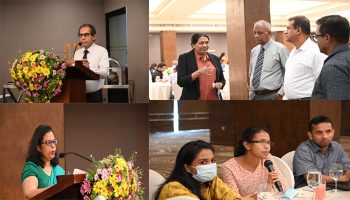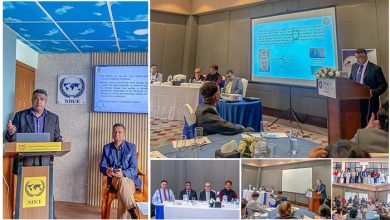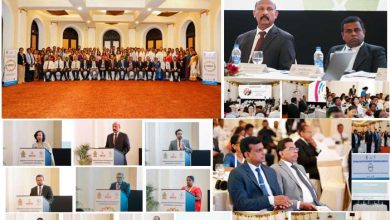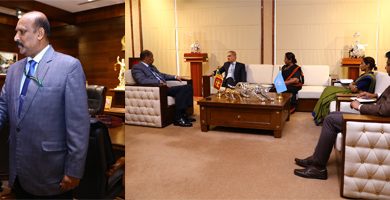Inception Workshop on Sri Lanka’s Hydrofluorocarbon (HFC) Phasedown Plan
Conducted in line with the Kigali HFC Phasedown Implementation Plan

Since becoming a signatory to the Montreal Protocol in December 1989, Sri Lanka has thus far sought to implement all national obligations. In 2018, Sri Lanka ratified the Kigali Amendment to the Montreal Protocol on substances that deplete the ozone layer, including the phase-down of the production and consumption of hydrofluorocarbons (HFCs).
Sri Lanka has successfully phased out Chlorofluorocarbons (CFCs) in the Refrigeration and Air Conditioning (RAC) sector and is currently implementing the second stage of the Hydro-chlorofluorocarbon Phase-out Management Plan (HPMP) for the gradual phaseout of HFCs in the RAC sector. To ensure compliance with the Montreal Protocol, Sri Lanka has established a licensing and quota system for HCFC imports and exports.
During HPMP Stage II, short, medium and long-term strategies will be developed to continue the HCFC phase-out effort and to facilitate the safe introduction of new alternatives to sustain the HCFC phase-out, in light of the overarching strategy.
Speaking on Sri Lanka’s progress in phasing out HFCs, Mr. W.D.S.C. Weliwatta, Additional Secretary (Natural Resources) – Ministry of Environment noted that, “Sri Lanka is progressing in its second stage of phasing out HFCs and hopes to fully phase out the use of HFCs by 2030. The government encourages the adaptation of new alternative technologies in view of the HFC phase-down plan, which will also contribute towards achieving energy efficiency. The HFC phasedown strategy especially focuses on energy efficiency and has programmes designed to train technicians, enhance training facilities at training centres, and provide essential tools towards phasing out the use of HFCs.”
In this regard, the Government of Sri Lanka with the assistance of the United Nations Development Programme (UNDP) in Sri Lanka has secured funding from the Multilateral Fund to develop the HFC phasedown plan for the country. UNDP is assisting the government to develop its HFC Phasedown proposal to obtain the necessary resources.
As a part of developing the HFC Phasedown Management plan of the Kigali Implementation Plan (KIP), The National Ozone Unit of the Ministry of the Environment is in the process of collecting the baseline information on HFC usage in the country with the support of UNDP and the Industrial Services Bureau – Northwestern Province.
Highlighting UNDP’s role in supporting Sri Lanka’s efforts in phasing out of HFCs, Ms. Sureka Perera, Programme Quality and Design Analyst, UNDP in Sri Lanka emphasized that, ‘’Replicating the urgency of phasing-down & phasing-down Ozone Depleting Substances (ODCs) in the real world is easier said than done. However, as we have seen both globally & locally, with the right technology & ambitious partners, reducing ODSs and limiting the potential for Greenhouse Gases to enter the atmosphere has been demonstrated to be a possibility. Realizing the importance of protecting the ozone layer, UNDP, globally, supports countries to eliminate ODSs through supporting the implementation of national ODS Phase-Out Management Plans. UNDP’s support includes technical assistance, formulation and implementation of country and sector strategies, capacity building, accessing funding from different sources, and forging important partnerships.”
To this end, the inception workshop was held recently, jointly organized by the National Ozone Unit, Ministry of Environment, UNDP in Sri Lanka and the Industrial Services Bureau – Northwestern Province to get insights from all relevant stakeholders for the implementation of the HFC Phasedown plan, the preparation of the KIP and discuss and agree on the way forward.






